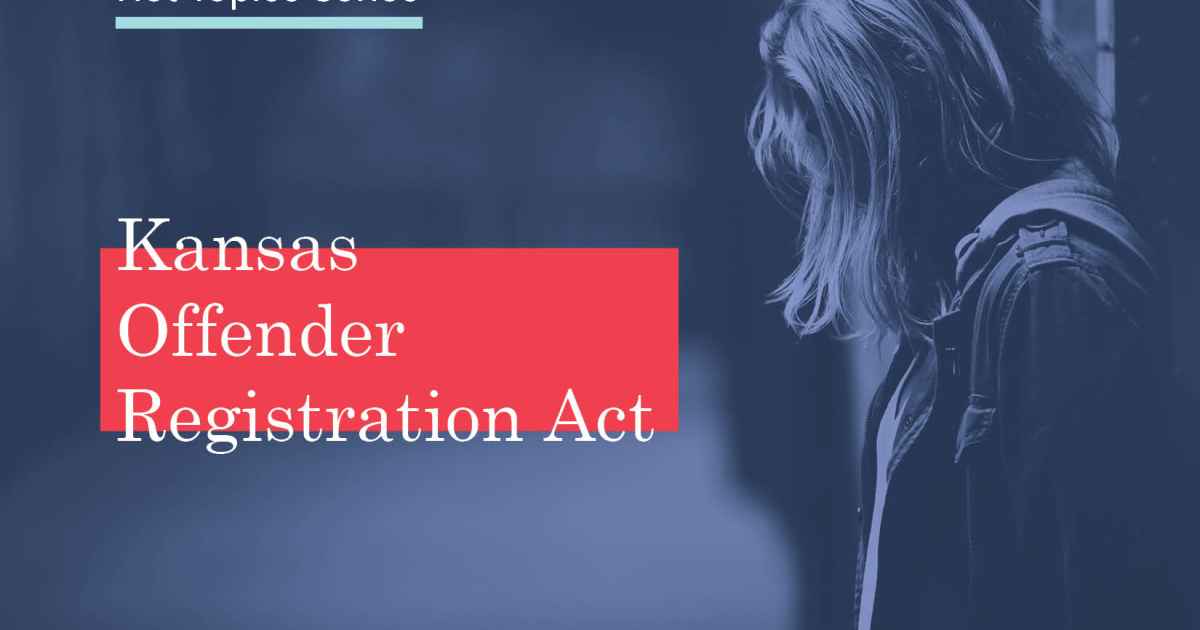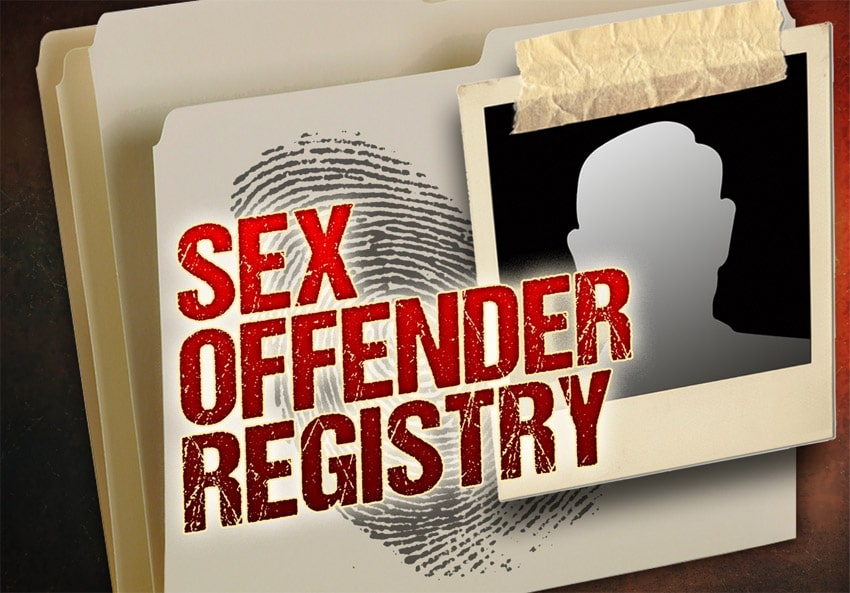Let’s face it, folks. In today’s world, safety is everything. Whether you’re a concerned parent, a vigilant homeowner, or just someone who wants to know what’s happening in your neighborhood, understanding how to conduct a Kansas offender registration search is crucial. This tool isn’t just some random database—it’s your key to staying informed about registered offenders in your area. So, buckle up, because we’re diving deep into everything you need to know about this vital resource.
When you hear the words “offender registration,” it might sound intimidating. But trust me, it’s not as scary as it seems. It’s actually a powerful way to protect yourself and your loved ones. Think of it like a superpower that lets you peek into the past and present of individuals who have been convicted of certain crimes. And hey, knowledge is power, right?
Now, before we jump into the nitty-gritty, let’s get one thing straight: this isn’t about spreading fear or panic. It’s about being proactive and informed. By the time you finish reading this article, you’ll feel like a pro at navigating the Kansas offender registration search system. So, are you ready to learn? Let’s go!
Read also:Casa De John Travolta The Ultimate Guide To His Iconic Home
What Is the Kansas Offender Registration Search?
Alright, let’s break it down. The Kansas Offender Registration Search is essentially a public database that allows residents to look up information on registered offenders in the state. This includes individuals who have been convicted of sex offenses or other serious crimes. The system is designed to keep communities safe by making this information accessible to the public.
But here’s the deal—this isn’t just any random database. It’s carefully maintained by the Kansas Bureau of Investigation (KBI), ensuring that the data is accurate and up-to-date. And guess what? You don’t need a degree in cybersecurity to use it. It’s user-friendly, and we’re about to show you exactly how it works.
Why Is It Important?
Let’s talk about why this matters. Imagine this: you’re moving to a new neighborhood, and you want to make sure it’s safe for your family. Or maybe you’ve noticed someone suspicious hanging around your kid’s school. Having access to the Kansas offender registration search can give you peace of mind and help you make informed decisions.
It’s not just about checking on strangers, though. Some people use this tool to verify the background of caregivers, babysitters, or even potential roommates. In short, it’s a resource that empowers you to take control of your safety.
How Does the Search Work?
Now, let’s dive into the mechanics of the Kansas offender registration search. It’s surprisingly simple, but there are a few things you should know to get the most out of it. First off, you’ll need to visit the official KBI website. Once you’re there, you’ll find a section dedicated to the offender registry.
From there, you can search by name, address, city, or even ZIP code. The system will then pull up a list of registered offenders who match your criteria. Each entry includes details like the offender’s name, photo, address, and offense history. It’s like having a personal detective at your fingertips!
Read also:List Of Army Jobs And Asvab Scores Your Ultimate Guide To Success
Tips for Effective Searching
Here are a few tips to make your search more effective:
- Start with a broad search and narrow it down as needed.
- Use variations of names if you’re not getting results.
- Double-check the information you find with other sources for accuracy.
- Remember that some offenders may have multiple addresses listed.
And hey, if you’re feeling overwhelmed, don’t worry. We’ve all been there. Just take it step by step, and you’ll be a pro in no time.
Understanding the Offender Registry
Now that you know how to use the search tool, let’s talk about what you’ll find in the offender registry. Each entry contains a wealth of information, including the offender’s personal details, offense history, and current status. This data is updated regularly to ensure accuracy.
But here’s something important to keep in mind: not all offenders are created equal. Some may have committed minor offenses, while others have more serious histories. It’s up to you to interpret the information and decide how it affects your situation.
Common Offenses in the Registry
So, what kind of offenses are we talking about here? The registry typically includes individuals convicted of:
- Sexual offenses
- Violent crimes
- Drug-related offenses
- Other serious felonies
Each offense carries its own weight, and understanding the severity can help you make better decisions. For example, someone convicted of a minor drug offense might pose less of a threat than someone with a history of violent behavior. It’s all about context.
Who Maintains the Registry?
Let’s give credit where it’s due—the Kansas Bureau of Investigation (KBI) is the brains behind the offender registration system. These folks work tirelessly to ensure that the registry is accurate, up-to-date, and accessible to the public. They collaborate with local law enforcement agencies to gather and verify information, making it a reliable resource for anyone who needs it.
But here’s the kicker: the KBI doesn’t just stop at maintaining the registry. They also provide resources and support for victims of crime, as well as educational materials to help communities stay safe. It’s like having a whole team of experts working for you!
How Often Is the Registry Updated?
One question we get a lot is, “How often is the registry updated?” The short answer is—it depends. The KBI strives to keep the database current, but updates can vary based on factors like court rulings, offender compliance, and administrative processes. That’s why it’s a good idea to check the registry regularly if you’re monitoring a specific individual or area.
And hey, if you notice something fishy—like outdated or incorrect information—don’t hesitate to report it to the KBI. They rely on community feedback to keep the registry as accurate as possible.
Legal Aspects of the Offender Registry
Now, let’s talk about the legal side of things. The Kansas offender registration system is governed by state laws that dictate who must register, how long they must register, and what information is made public. These laws are designed to protect the public while respecting the rights of offenders.
But here’s the thing—laws can change, and it’s important to stay informed about any updates. For example, recent legislation may have altered the requirements for certain offenses or expanded the types of information available to the public. If you’re serious about using the registry, it pays to keep an eye on these changes.
Who Must Register?
Not every offender is required to register. In Kansas, the rules generally apply to individuals convicted of:
- Sexual offenses
- Violent crimes
- Drug-related offenses
- Other specified felonies
The length of time an offender must register can vary based on the severity of their offense and other factors. Some may be required to register for a few years, while others may have to do so for life. It’s all part of the legal framework that ensures public safety.
Staying Safe in Your Community
So, you’ve learned how to use the Kansas offender registration search. Now what? The next step is putting that knowledge into action. Whether you’re monitoring your neighborhood or vetting potential caregivers, this tool can be a game-changer.
But remember, safety isn’t just about checking boxes. It’s about being proactive, staying informed, and communicating with your community. Talk to your neighbors, attend local meetings, and share information when appropriate. Together, you can create a safer, more connected neighborhood.
Resources for Further Information
Here are a few resources to help you stay informed:
- Kansas Bureau of Investigation (KBI) website
- Local law enforcement agencies
- Community safety organizations
- Victim support groups
And hey, if you’re ever unsure about something, don’t hesitate to reach out. Knowledge is power, and there’s no shame in asking for help.
Conclusion
Alright, folks, that’s a wrap. By now, you should feel like a true expert on the Kansas offender registration search. You know how it works, why it matters, and how to use it to protect yourself and your community. It’s a powerful tool, and when used responsibly, it can make a real difference in your life.
So, what’s next? We encourage you to take action. Whether it’s checking your neighborhood, sharing this information with friends, or exploring the resources we’ve mentioned, every step counts. And if you have any questions or feedback, feel free to drop a comment below. We’d love to hear from you!
Table of Contents
- Kansas Offender Registration Search: Your Ultimate Guide
- What Is the Kansas Offender Registration Search?
- Why Is It Important?
- How Does the Search Work?
- Tips for Effective Searching
- Understanding the Offender Registry
- Common Offenses in the Registry
- Who Maintains the Registry?
- How Often Is the Registry Updated?
- Legal Aspects of the Offender Registry
- Who Must Register?
- Staying Safe in Your Community
- Resources for Further Information
- Conclusion


